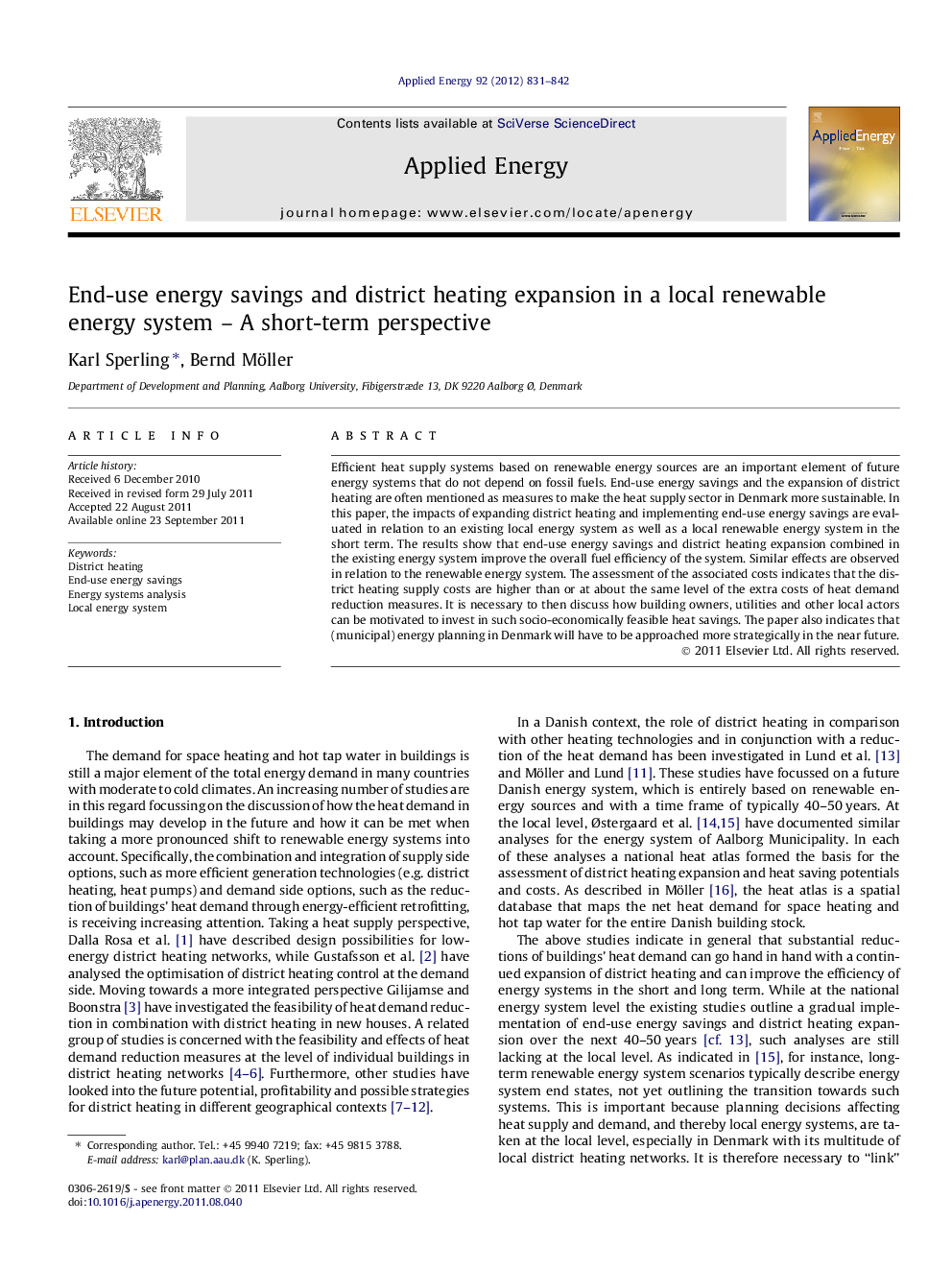| Article ID | Journal | Published Year | Pages | File Type |
|---|---|---|---|---|
| 243663 | Applied Energy | 2012 | 12 Pages |
Efficient heat supply systems based on renewable energy sources are an important element of future energy systems that do not depend on fossil fuels. End-use energy savings and the expansion of district heating are often mentioned as measures to make the heat supply sector in Denmark more sustainable. In this paper, the impacts of expanding district heating and implementing end-use energy savings are evaluated in relation to an existing local energy system as well as a local renewable energy system in the short term. The results show that end-use energy savings and district heating expansion combined in the existing energy system improve the overall fuel efficiency of the system. Similar effects are observed in relation to the renewable energy system. The assessment of the associated costs indicates that the district heating supply costs are higher than or at about the same level of the extra costs of heat demand reduction measures. It is necessary to then discuss how building owners, utilities and other local actors can be motivated to invest in such socio-economically feasible heat savings. The paper also indicates that (municipal) energy planning in Denmark will have to be approached more strategically in the near future.
► Application of heat atlas methodology to building stock of Frederikshavn (Denmark). ► Analysis of potential/costs of end-use energy savings and district heating expansion. ► Energy systems analysis of existing and renewable, local energy system. ► Savings and district heating expansion improve fuel efficiency of both systems. ► Moderate savings appear socio-economically feasible compared to heat supply costs.
